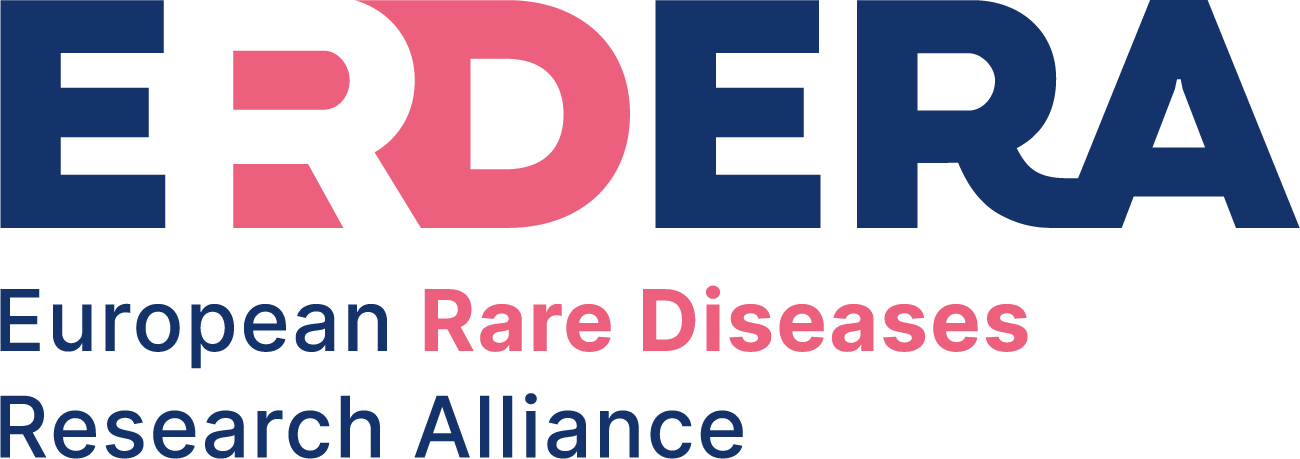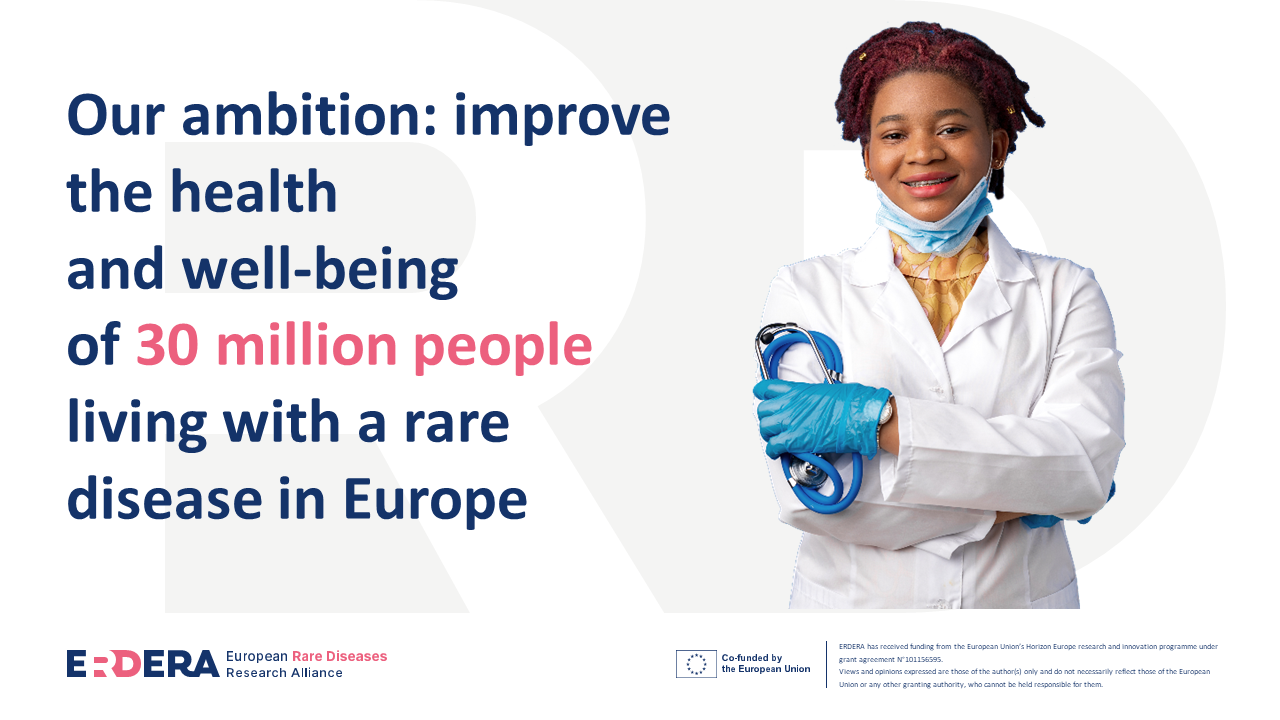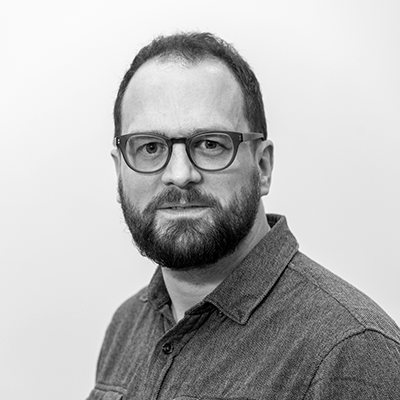European Partnership Opens a New Era in Rare Disease Research

The European Rare Diseases Research Alliance (ERDERA) kicks off this September, with an estimated budget of 380 million euros and the aim of improving the lives of 30 million rare disease patients in Europe and beyond.
The new partnership, championed by the European Union under Horizon Europe and Members States, is led by the National Institute of Health and Medical Research - INSERM (France). It integrates over 170 organisations from the public and private sectors to advance prevention, diagnosis and treatment research in rare diseases.
The European Union is expected to contribute around 150 million euros to this co-funded partnership via Horizon Europe, while the rest of the funding will come from members states, countries associated to Horizon Europe and in cash and in-kind contributions from public and private partners.
The alliance takes over the co-fund EJPRD to bring under one roof all knowledge, resources and services, boost clinical research and spur innovation to make Europe a world leader in this field.
ERDERA will hold a launch event on 28 October 2024 to present its roadmap for the next decade.
Today, around 7000 rare diseases affect more that 300 million people worldwide, yet the majority of rare and ultra rare diseases still lack a therapeutic option. Patients endure a long journey to receive a diagnosis, which typically takes four years for known diseases; however, 50% of patients never obtain a definitive molecular diagnosis. Moreover, 52% of patients and caregivers report that their condition has a severe impact on their daily lives.
To address these important issues, the European Rare Diseases Research Alliance (ERDERA) has been set up to build on the advancements made by former EU-funded projects such as SOLVE-RD, ERICA and the European Joint Programme for Rare Diseases (EJP RD), the previous partnership which has run for the past 5 years.
ERDERA will continue developing a robust and comprehensive data and expertise infrastructure and innovative clinical research services with a focus on advanced therapies, funding new research projects, providing training and expediting translation of findings into tangible solutions for patients. It will also ensure alignment on international and national rare diseases research strategies.
Iliana Ivanova, Commissioner for Innovation, Research, Culture, Education and Youth, said:
Millions of Europeans suffer from one of the rare diseases, but we lack a good understanding of their condition as well as preventive measures, diagnostics and treatments. This is where a common policy at EU level and pooled resources can make a huge difference. The new ERDERA partnership can harness the unique potential of Horizon Europe in changing people’s lives for the better. I wish it all success in its important work.
Transforming rare diseases research and care in Europe through a tripartite mission
With an estimated overall budget of 380 million euros until 2031, ERDERA aims to have a major impact on rare diseases by supporting patient driven research to develop new treatments and diagnostic pathways and harnessing the potential of health and research data, Artificial Intelligence (AI) and digital technologies. The partnership will be crucial in helping shape the European Research Area on Rare Diseases. To this end, ERDERA will promote the coordination and integration of national and regional research strategies, fostering public-private partnerships and global collaborations, and accelerating the transition from knowledge to viable solutions for patients. Ultimately, this alliance will make Europe a world leader in rare diseases research and innovation, boosting EU competitiveness and creating jobs.
Daria Julkowska, ERDERA scientific coordinator, explained:
We have a tripartite mission: One; to bring under one roof a broad range of high-value services, resources and cross-disciplinary expertise to support rare disease research; Two, to boost clinical research by enabling every consenting patient living with a rare disease to be findable and enrolled in a suitable clinical study and finally, to spur innovation and EU competitiveness, through investment but also by aligning regional, national and European research strategies, and fostering collaboration among all stakeholders at a global scale.
Addressing rare diseases from multiple perspectives
The multidisciplinary team of more than 1400 professionals involved in ERDERA will contribute their expertise in preclinical, clinical and translational research; drug development and diagnosis innovation; biostatistics; data and regulatory science; research funding; social sciences and humanities; patient engagement or education. The partnership is structured around four key pillars:
Funding - ERDERA will provide financial support for collaborative international research projects, clinical trials, and knowledge exchange and networking initiatives.
Clinical Research Network – Encompassing all ERDERA’s in-house research activities, this network will enhance diagnostics and clinical trial readiness, help ERDERA has received funding from the European Union’s Horizon Europe research and innovation programme under grant agreement N°101156595. Views and opinions expressed are those of the author(s) only and do not necessarily reflect those of the European Union, who cannot be held responsible for them. assess the impact of rare diseases and support the development of advanced therapies. It will also build on the clinical expertise of the 24 European Reference Networks (ERNs) established in 2017 thanks to the Directive on patients’ rights in cross-border healthcare.
Support Services – This includes a Data Services Hub to facilitate global data collection, integration, analysis, and sharing at a global scale; an Expertise Services Hub to offer guidance on specific aspects of translational and clinical research; and an Acceleration Hub that collaborates with industry partners to advance the most promising research projects and technologies. Additionally, ERDERA will maintain a robust Education and Training program.
International Alignment - Through existing and newly established National Mirror Groups, the partnership will ensure alignment between national and international rare disease research strategies, particularly in nations that are behind in developing and implementing national plans. ERDERA will also host the Scientific Secretariat of the International Rare Disease Research Consortium (IRDiRC), a unique consortium globally, co-established by the European Commission and US National Institutes of Health back in 2011.
Amongst the over 170 organisations from 37 countries, are leading global research institutes, patients’ organisations, European research infrastructures, pharmaceutical and technology companies, public funding agencies, philanthropic and private funders, regulatory institutions, healthcare authorities, hospitals, universities or medical associations.
A launch event to deep dive into ERDERA
To present its ambition in the wider context of the EU rare diseases research strategy, ERDERA will hold a launch event next 28-29 October where representatives from the EC, the French Ministries of Health and Research, ERDERA leadership team and patient organisations will take the floor. The opening session schedule for 28 October between 2-3.30pm (CET), will be open to members of the press who can join online. More information will follow closer to the event.
Useful links:

Author(s)

John Dawson